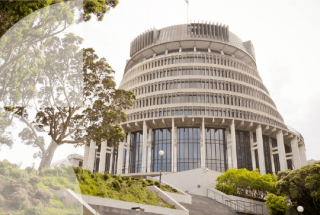Minister to reverse new non-notification law

Minister to reverse new non-notification law
Thursday 23 November, 2017
Environment Minister David Parker has indicated that the Government will attempt to reform the Resource Management Act 1991 (RMA) which was amended in April this year through the Resource Legislation Amendment Act 2017 (RLAA).
In particular, the Minister has signalled an intention to reinstate the public's right to participate in certain discretionary resource consent processes which was removed as part of the reforms that came into effect on 18 October. Section 95A(5)(b)(ii) now precludes public notification for a restricted-discretionary or discretionary application for a subdivision of land, a boundary activity (as defined in new s 87AAB), or a residential activity (defined in new section 95A(6)) unless special circumstances exist. The RLAA also removed the right for applicants and submitters to appeal resource consent decisions made by district councils relating to subdivision, boundary, and residential activities unless the activity has non-complying status (s 120(1A)).
Speaking to the media about the government’s intention to introduce the reforms, the Minister expressed the view that removing public notification and appeal rights was going "a step too far" for applicants and submitters. "We still think that was wrong. We are intending to have some reform of the Resource Management Act and that would be one of the things that we would fix," he said.
The Minister did not want to give the impression that a law change would be a quick fix. Amending the RMA required "a big piece of work", he said, adding that people had a right to be heard about landscape issues. "We have the general view that we ought not to take away the public's right to participate but we should make sure processes under the Resource Management Act are dealt with quickly. We don't think the right way to go is to rip people's rights off them," the Minister said.
This is welcome news to those that say the new provision threatens landscape protection and informed decision making.
Queenstown Lakes District Council, who submitted in opposition to the law change, has been in the spotlight recently in relation to its implementation of the new law. After taking legal advice, it issued a practice note in October, stating all discretionary rural subdivisions would not be notified to the public. Only in limited, special circumstances can some people have a say. Legal practitioners have queried whether the Council’s new practice is legally correct.
Commenting on the practice note the Minister said he had two queries: firstly, whether the Council was appropriately applying the new law, and secondly, whether an application for a "building platform" fell within the meaning of a "subdivision". "People will have to explore for themselves. If the Council is wrong and is acting ultra vires, that is not for me to determine" the Minister said.
We will monitor future developments in relation to the new provisions and provide a report in future issues of the legal brief.
Please contact Bridget Parham if you want to learn more about the issues discussed in this article.






